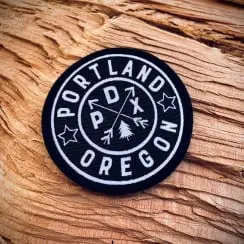 | 1 LU |
 | 1 LU |
Room: F150-151
Furnished by: Smith System + Steelcase Learning
Audience: Architects

Call to Action: Invite students to the design process in a meaningful way to truly innovate Think differently about student engagement to elevate their experience and the design they inspire Use design thinking workshop with students to learn from them best way to support educational experiences
Abstract: When the Logan City School District wanted an innovative next generation learning environment a student led design experience became the voice to inspire and unify administration. We will tell the story of a cohort of High School Students who were involved in a design experience that explored curiosity and wonder to transform their school and the educational experience for future students. The student experience inspired design ideas that were implemented in a prototype learning environment that was constructed in a corner of the existing school prior to the Design Team completing the replacement plan. Students tested and tinkered in the prototype space which further informed the design. The final design of the new Logan High School shifted the paradigm in Utah of what a next gen should be. This session will share the details and result of the process. We will also hear from a student from the cohort to learn about what the experience meant to him at the time and in the years since. We will also share the student design experience of elementary students at West Bountiful Elementary school. You’ll see how elementary aged students engaged in a unique design experience to inspire imagination in their new elementary school. Their experience demonstrates that students of all ages will innovate when they are invited to the process and inspired to think differently.
Learning Objectives:

Brian is a Vice President at MHTN Architects with 20+ years of experience developing innovative learning environments that focus on enhancing the student learning experience. His expertise in community engagement and learning from students and educators has led the evolution of Utah Schools becoming engaging, student-centered places that support all modes of learning. Brian believes in an inclusive design process that focuses on the learning experience and celebrates the uniqueness of each school community.

Meet Ben, a seasoned professional with 13 years of expertise in crafting next generation learning spaces. Dedicated to supporting educators and students, Ben excels in tailoring environments to diverse teaching and learning styles. His role involves understanding school districts’ needs, aligning designs with curricula, and addressing local community requirements. Ben's talent lies in simplifying complex design challenges and developing optimal learning environments.

Stanley is a current student at Utah State University studying Music BA. He has taken many classes in music education as well as some practicum experience in teaching both a choir and a band. Stanley also participated in the Wonderlab experience as a high school student and has collaborated with different students in finding ways to be the most creative. Both of these experiences have helped Stanley focus on people and maximizing their potential.
Educational Visioning
Exhibits an understanding of best and next practices related to educational leadership, programming, teaching, learning, planning and facility design. Establishes credibility with educators, community members and design professionals while conceiving and leading a community-based visioning process. Demonstrates the ability to articulate the impact of learning environments on teaching and learning and uses that ability to facilitate a dialogue that uncovers the unique needs and long-range goals of an educational institution and its stakeholders – translating that into an actionable written/graphic program of requirements for the design practitioner.